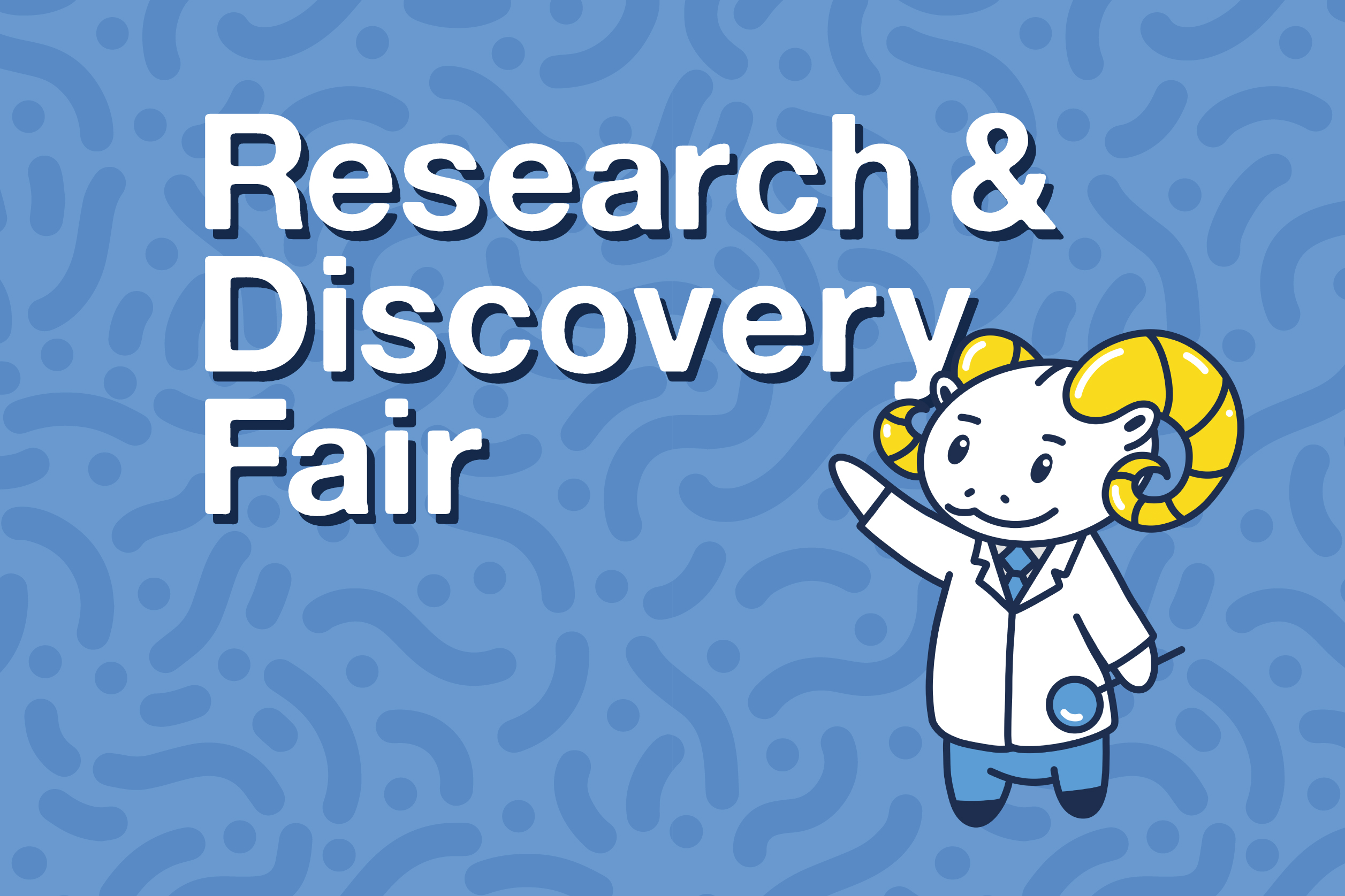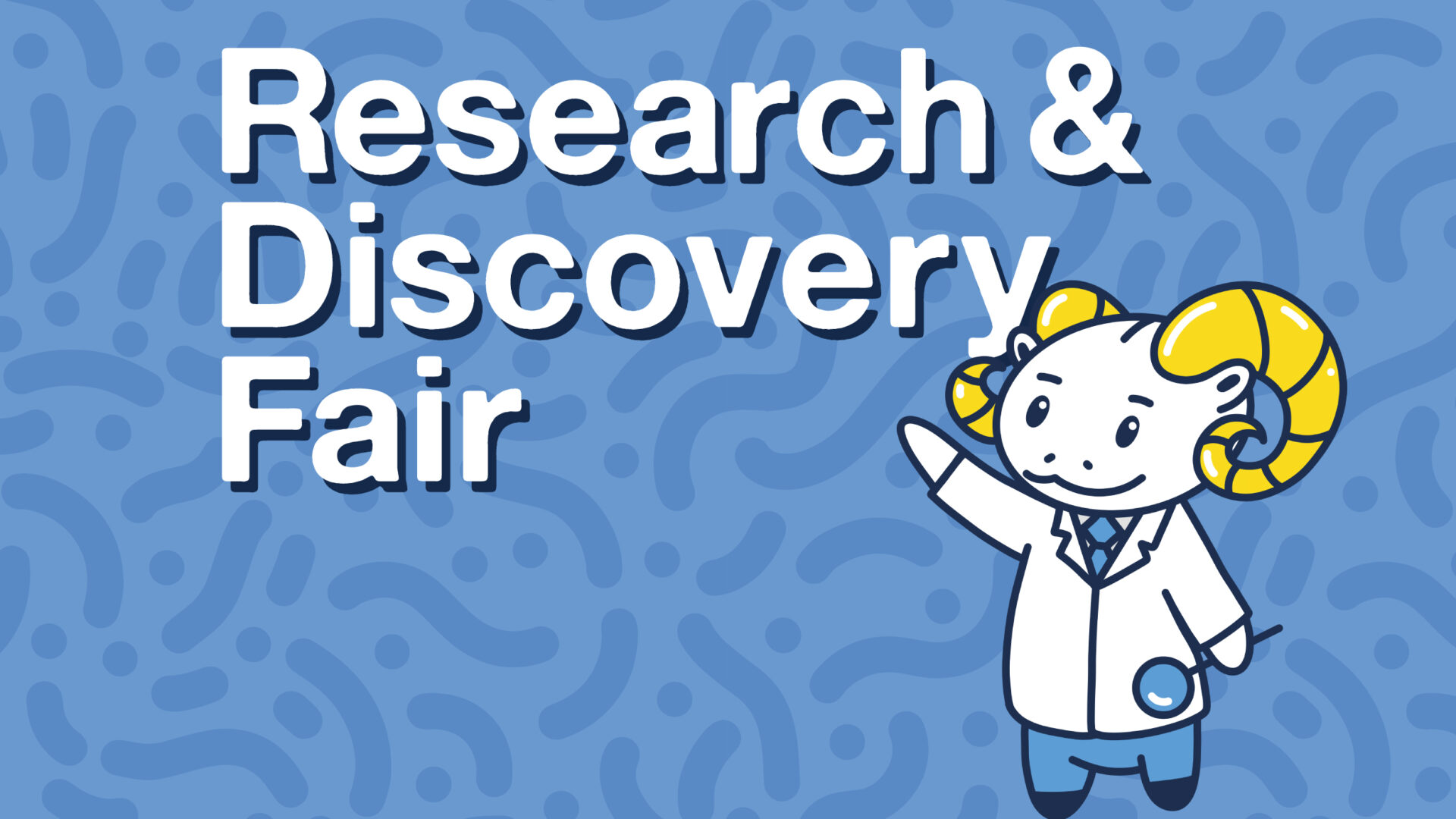
Hey undergrads, stop by the student union to get involved in Carolina’s research community!
The fair will feature over 25 UNC research labs and projects from marine biology to robotics to drones to music. UNC-Chapel Hill has a type of research that will pique your interest.
Visit the Great Hall to get an up-close look at what some of our researchers do and see how you can get involved. Join us for an afternoon of demonstrations, interactive experiments, and a look behind the scenes at how discoveries are made in the lab and beyond.
This is an in-person, CLE Credit event.
Participating Projects & Labs:
- Applied Engineering Lab: Featuring Spot the Robot Dog
- Physical Mathematics Laboratory
- Cardiovascular Modeling and Simulation
- NC Pure
- Morehead Science on Stage
- Bai Lab: Fundamental and Applied Study of Soft Materials and Nanomaterials
- BeAM: Be A Maker
- Burroughs Wellcome Fund (Event Sponsor)
- Carolina Drone Lab
- Center for Galapagos Studies
- CIRCLE Lab: Child Imaging Research on Cognition and Life Experiences
- Computer Vision and Graphics
- Pégard Lab: Advanced Optical Instrumentation for Applications in Biology, Neuroscience, and Medicine
- Data-Driven EnviroLab
- Digital Literacy and Communications Lab
- School of Education: Education Policy Research, from a Sociological Lens
- Environmental Protection Agency (Event Sponsor)
- Freeman Lab: Biomaterials Design
- Graduate Costume Production Program
- Institute for Risk Management and Insurance Innovation
- HHIVE Lab: Health and Humanities
- Institute for the Environment: Field Site Opportunities
- Marine Life Sciences
- Joint Fluids Lab
- K. Pfenning Lab: Spadefoot Toad Research – Later Life
- Office of Undergraduate Research
- Physical Mathematics Laboratory
- Research Labs of Archaeology
- Southern Folklife Collection
- The NC Pure Project
- UNC Department of Music: Juan Álamo & His Marimba
- UNC Research
- University Libraries
The Applied Engineering Laboratory provides facilities and expertise for building prototypes of a variety of microtechnology-based systems.
The Physical Mathematics Laboratory uses theory, simulations, and experiments to uncover new phenomena relevant to the fields of physics and engineering.
Boyce Griffith and his research group use methods of computational and applied mathematics, computer science, and bioengineering to develop physiological models of cardiac and cardiovascular function in health and disease.
The North Carolina PFAS University Research Alliance (NC Pure) aims to evaluate commercial and emerging technologies for PFAS remediation from North Carolina waters. Thjey are an interdisciplinary group of chemists and engineers developing new, selective, PFAS remediation materials, testing a wide range of waters from the state, and designing and implementing pilot-scale water remediation systems to test remediation technologies at water treatment plants.
Since the planetarium opened in 1949, millions of North Carolina students, teachers, and families, as well as visitors from around the world, have benefited from Morehead science programs. Science on Stage captivates participants with interactive experiments and demonstrations performed by a Morehead educator.
The Bai lab focuses on both fundamental and applied study of soft materials and nanomaterials, including assembly and manufacturing approaches to enable hybrid integration of multimaterials towards high-performance electronic and photonic systems, the development of new technology that can intelligently immerse electronics and photonics into biological systems, and the creation of new tools and devices to address unmet clinical needs and improve human healthcare and sustainability.
BeAM@CAROLINA is a network of makerspaces where you can join the UNC maker community in the design and making of physical objects for education, research, entrepreneurship and recreation.
UNC-Chapel Hill is a premier research university, conducting over a billion dollars of sponsored research each year. BeAM@Carolina is here to help researchers achieve their objectives by providing resources and educational opportunities to expand their skillset and prototype, all at little to no cost to you.
The Burroughs Wellcome Fund’s grantmaking strategies support biomedical scientists at the beginning of their careers and areas of science that are poised for significant advancement but are currently undervalued and underfunded.
BWF has programs which support primary and secondary students, science and mathematics teachers, institutions, and academic scientists: postdoctoral-faculty bridging awards and faculty awards.
The Carolina Drone Lab (CARDNL) serves as a collaborative space and knowledge hub that facilitates the innovative use of drones and sensors to solve environmental and societal challenges. CARDNL is a continuously-evolving resource for collaborators both within the UNC community and beyond.
The Center for Galapagos Studies coordinates UNC’s Galapagos-related research, teaching, and outreach activities in Chapel Hill with the joint UNC/USFQ Galapagos Science Center located on San Cristobal Island in the Galapagos Archipelago.
The Child Imaging Research on Cognition and Life Experiences (CIRCLE) Lab is a research group in the Psychology and Neuroscience Department at UNC studying the impact of different life experiences on behavior and the developing brain.
Roni Sengupta is an assistant professor of computer science at the University of North Carolina at Chapel Hill. Sengupta’s research interest lies at the intersection of computer vision and computer graphics, with a focus on solving inverse graphics problems for democratizing high-quality video production and editing. Her work on background matting received Best Student Paper Honorable Mention at CVPR 2021 (Top 7 papers out of 1600 accepted) and has been adopted by various companies, e.g., Microsoft, Inter State Studio, etc.
The Pégard Laboratory develops advanced optical instrumentation for applications in biology, neuroscience, and medicine. The lab’s research strategy moves away from traditional microscopy and the reconstruction of visual images.
The Data-Driven EnviroLab (DDL) is an interdisciplinary and international group of researchers, scientists, programmers, and visual designers. The DDL uses innovative data analytics to distill signals from large-scale and unconventional datasets and develop policy solutions to contemporary environmental problems.
The Digital Literacy and Communications Lab serves as a hub for innovation in the humanities with a focus on digital humanities, critical games studies, digital literacy, and communications.
A sociologist by training, Thad Domina works with educational practitioners to better understand the relationship between education and social inequality in the contemporary U.S.
The Environmental Protection Agency (EPA) is an independent agency of the United States government tasked with environmental protection matters. Their mission is to protect human health and the environment.
Every year, EPA awards more than $4 billion in funding for grants and other assistance agreements. From small non-profit organizations to large state governments, EPA works to help many visionary organizations achieve their environmental goals. A number of UNC research projects have been awarded these grants.
The Freeman Lab is an interdisciplinary team seeking to develop novel designer materials using self-assembling biological components.
Research plays a huge role in creating the costumes for a production, especially when the show takes place in a different era. PlayMakers Repertory Company, a professional Equity theatre and member of the League of Resident Theatres, is affiliated with the Department of Dramatic Art. The opportunity to work in a professional costume shop provides an integral part of the teaching process. Invaluable production training is gained by committing to the creation of costumes meeting exceptionally high standards required in the professional theatre.
Dr. Characklis serves as William R. Kenan, Jr. Distinguished Professor at the University of North Carolina at Chapel Hill, where he holds appointments in both the Department of Environmental Sciences and Engineering and the UNC Institute for the Environment. His primary research interests involve developing solutions to water resource challenges through systems-based approaches that integrate consideration of both engineering and economic principles, with a particular focus on evaluating and managing environmental financial risk.
Housed in the Department of English and Comparative Literature at UNC-Chapel Hill, the HHIVE Lab and affiliated curricula extend beyond departmental boundaries to harnesses the energy, talent, and knowledge of Carolina faculty, staff, and students working at the intersection of the humanities, the arts, and the health sciences. The HHIVE Lab is a space for innovative research, curricular, and programming.
A network of field sites in North Carolina and abroad advance UNC’s missions in undergraduate education, environmental research and community engagement. The Institute for the Environment, in partnership with the Environment, Ecology and Energy Program and the UNC Study Abroad Office, has established site locations that offer ecosystem settings ranging from mountains to coasts to urban environments and tropical rain forests. Students experience a combination of indoor and outdoor classroom time and fieldwork at all the field sites.
Dr. Fodrie is an estuarine ecologist who studies the population dynamics of fishes and shellfish. His research studies have occured along all three major U.S. coastlines, and broadly examines linkages between habitat and fisheries production, movement ecology (landscape to population connectivity scales), coastal marine food-web interactions and trophic energy flows, and long-term population and community responses to natural and human-influenced stressors.
The Joint Applied Mathematics and Marine Sciences Fluids Lab is an interdisciplinary research lab in the Carolina Center of Interdisciplinary and Applied Mathematics at the University of North Carolina at Chapel Hill. The lab is a collaborative effort between professors, postdoctoral research associates, graduate students, undergraduate students and high school students in the Departments of Mathematics, Marine Sciences, Biology, and Physics.
Using spadefoot toads as their study system, the K. Pfenning Lab integrates behavior, ecology, and evolution to understand behavior’s role in the origins and distribution of biodiversity. They combine work in natural populations with lab-based experiments and genetic analyses. They primarily study the evolution of mate choice behavior, because it is both subject to strong selection and is itself a potent selective force.
At the Office for Undergraduate Research, we believe that students who engage in research during their college careers are better prepared to collaborate with others to improve our world and to become tomorrow’s leaders. We help undergraduates get connected to the larger Carolina research community, find research funding, and share their research with others.
At the Physical Mathematics Lab, they’re interested in fundamental problems that find motivation in physics and engineering. Their projects are interdisciplinary; combining theory, simulations & experiments to unveil and rationalize new natural phenomena.
The Research Laboratories of Archaeology (RLA) was founded in 1939 as a center for the study of Native American culture in North Carolina and nearby states. Since then, its activities have grown to include research throughout the Americas. Currently, the RLA’s mission has four facets: to expand knowledge of native peoples in the Americas, with particular emphasis on North Carolina and the South; to train graduate and undergraduate students in the methods of archaeology; to inform the public about Indian culture and archaeology; and to serve as a repository of archaeological collections.
The Southern Folklife Collection is an archival resource dedicated to collecting, preserving and disseminating traditional and vernacular music, art, and culture related to the American South.
The North Carolina PFAS University Research Alliance (NC Pure) aims to evaluate commercial and emerging technologies for PFAS remediation from North Carolina waters. They are an interdisciplinary group of chemists and engineers developing new, selective, PFAS remediation materials (sorbents), testing a wide range of waters from N.C. drinking water and wastewater treatment plants and wells, and designing and implementing pilot-scale water remediation systems to test remediation technologies at water treatment plants.
For most of his life, Juan Álamo has used music to connect to and communicate with others. As a skilled marimba player, he uses his talent and passion to teach the next generation of musicians to do the same.
Serving North Carolina, Changing the World
The University of North Carolina at Chapel Hill is the 12th largest research university in the United States, ranking 11th in the nation for federal research expenditures. More than 150 Carolina faculty are members of the National Academies and other prestigious learned societies. A highly collaborative culture among researchers of all disciplines drives our $1.36 billion in annual research activity.
The University of North Carolina at Chapel Hill’s library system is consistently ranked among the top university libraries in North America and is one of the premier libraries in the South. The University Libraries provides a range of research support services for UNC students, staff, and faculty, including research consultations, library data services, and access to both digital and physical materials.

